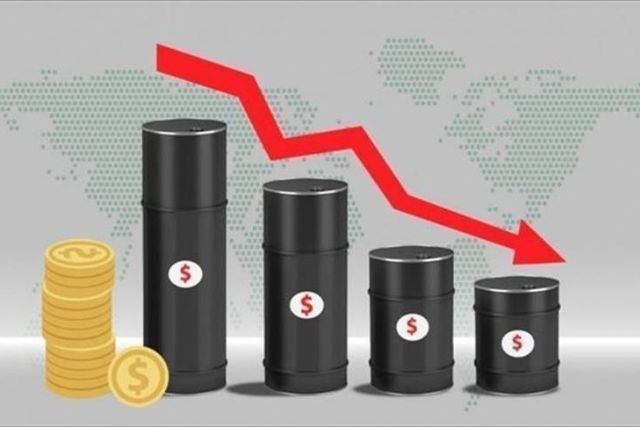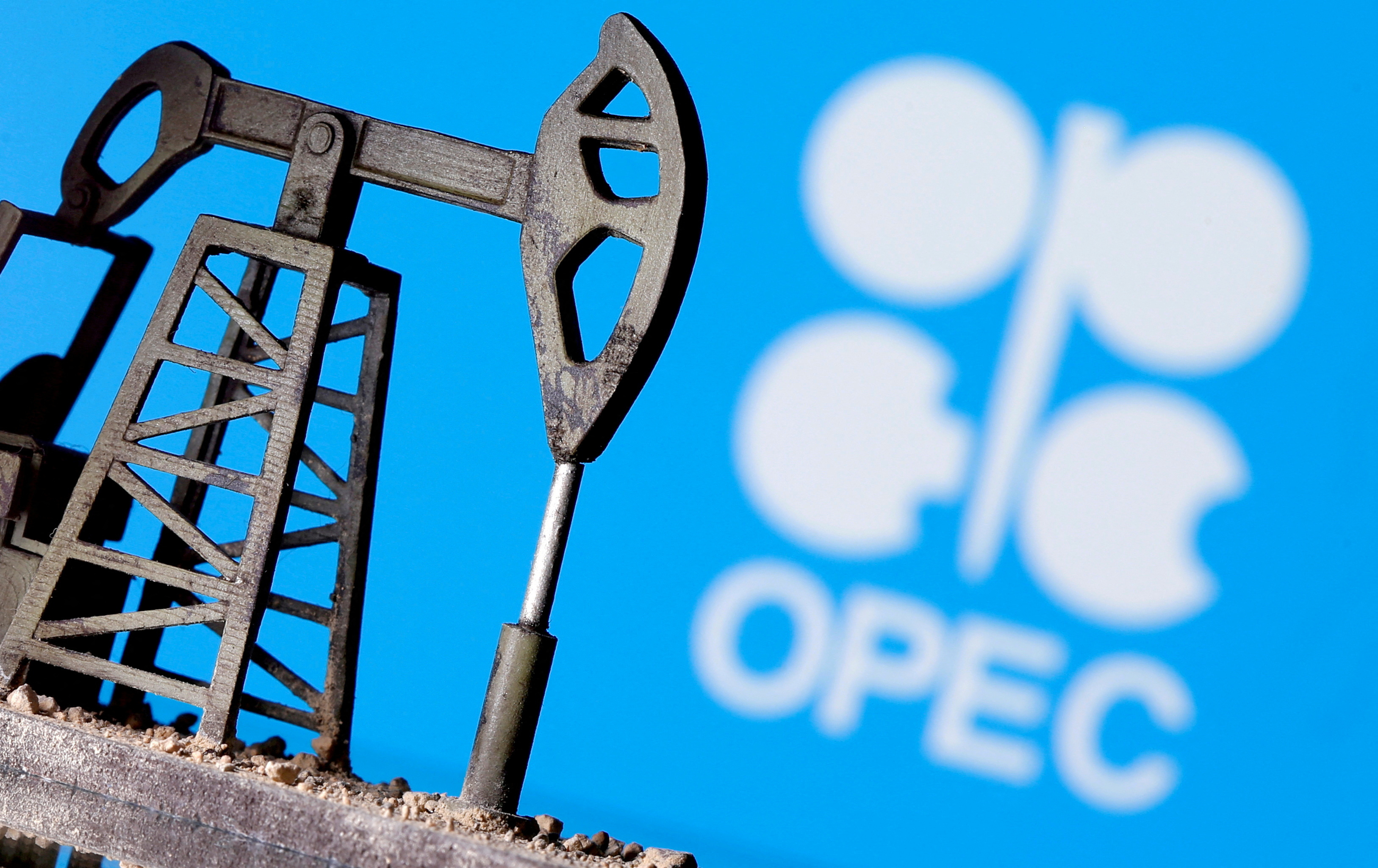Oil slips 2% on growing angst over delayed OPEC+ meeting

Oil slips 2% on growing angst over delayed OPEC+ meeting
The 2% dip in oil prices on Thursday was largely attributed to the postponement of an OPEC+ meeting. OPEC+, which includes the Organization of the Petroleum Exporting Countries (OPEC) and non-OPEC oil-producing nations, has been a key player in shaping global oil production levels through coordinated output cuts or increases.
The decision to postpone the meeting raised concerns and led to expectations that the group might not deepen output cuts in the coming year. This uncertainty surrounding future production levels has introduced volatility into the oil market, prompting a decline in prices.

Brent crude futures, a benchmark for international oil prices, experienced a notable drop of $1.40, equivalent to approximately 1.7%, settling at $80.56 per barrel by 1434 GMT on Thursday. The decline was particularly significant given that Brent crude had fallen by as much as 4% in the preceding day.
Similarly, U.S. West Texas Intermediate (WTI) crude, a key benchmark for oil prices in the United States, saw a decrease of $1.37, or around 1.4%, reaching $75.73 per barrel. The magnitude of this decline was noteworthy, especially considering that WTI had experienced a more substantial drop of up to 5% in the previous session.
The oil market is inherently sensitive to geopolitical events, global economic conditions, and decisions made by major oil-producing nations. Any shifts in production levels can have a profound impact on supply and demand dynamics, influencing oil prices accordingly. Investors, traders, and analysts closely monitor developments within OPEC+ and other geopolitical factors to anticipate and respond to changes in the oil market.
The surprise move by the Organization of the Petroleum Exporting Countries (OPEC) and its allies, including Russia, to delay their ministerial meeting until November 30 has injected an element of uncertainty into the oil market. Originally scheduled for November 26, the meeting was anticipated to be a crucial discussion point for oil output cuts.
Reports from OPEC+ sources indicate that producers were facing challenges in reaching a consensus on output levels, contributing to the decision to postpone the meeting. The sources suggest that the disagreement is primarily tied to a trio of African nations, highlighting the complexities and diverse interests within the coalition.

OPEC+ has historically played a significant role in stabilizing global oil markets by coordinating production adjustments to manage supply and demand dynamics. The delay in the meeting underscores the complexities of aligning the interests of diverse oil-producing nations, each with its unique economic and geopolitical considerations.
The decision to postpone the meeting until November 30 raises questions about the potential outcomes of the discussions. Market participants are likely to closely monitor developments and statements from key OPEC+ members in the lead-up to the rescheduled meeting, as any decisions regarding oil output levels can have a profound impact on global oil prices.
The trio of African nations involved in the disagreement adds a geopolitical dimension to the situation, emphasizing the diverse challenges faced by OPEC+ in finding a consensus among its member countries. As the new meeting date approaches, the oil market will be on alert for any indications of a resolution to the disagreements and the potential implications for future oil production levels.
The situation involving Angola, Congo, and Nigeria seeking to raise their 2024 supply quotas above the provisional levels agreed at the June meeting of the OPEC+ producer group adds an interesting dimension to the ongoing dynamics within the organization.
Nigeria, as suggested by RBC Capital Markets analyst Helima Croft, might find a resolution more amicably due to its longstanding OPEC membership and improving ties with Saudi Arabia. The importance of Nigeria’s role within OPEC and its diplomatic relations could potentially facilitate discussions and lead to a compromise on the proposed supply quotas.
On the other hand, Angola’s stance is described as more challenging, characterized as a “moody” member of the producer group since its accession in 2007. This implies that Angola may present a greater challenge in reaching an agreement, possibly due to its distinct economic and geopolitical considerations that may not align easily with the broader interests of the OPEC+ coalition.
The differing attitudes among these African nations highlight the complexities faced by OPEC+ in managing the diverse interests of its member countries. The organization has historically grappled with finding common ground among members with varying economic structures, levels of oil reserves, and geopolitical considerations.
As negotiations unfold, the oil market will be closely watching for any developments and statements from the concerned nations and OPEC+ leadership. Any resolution or lack thereof could have implications not only for the specific countries involved but also for the broader stability of global oil markets, as OPEC+ decisions have a significant impact on supply and, consequently, oil prices. The ongoing dialogue and negotiations within OPEC+ underscore the delicate balance required to navigate the interests of diverse oil-producing nations within the coalition.
The remarks by Tamas Varga of oil broker PVM underscore the significant challenges facing OPEC+ in maintaining cohesion and addressing internal disagreements. While the organization has historically managed to quell internal upheavals effectively, the latest episode highlights the magnitude of the task at hand.
The anticipation of continuous volatility in oil prices is a reflection of the uncertainty surrounding the upcoming OPEC+ meeting. The potential for a price swing of $10 or more indicates the market’s sensitivity to the decisions that will be made during and after the meeting. The outcome of OPEC+ discussions will not only impact the immediate supply and demand dynamics but also shape market sentiment and investor confidence, contributing to the potential for significant price movements.
The concerns over OPEC+ supply decisions are further complicated by the unexpected increase in U.S. crude stocks, which surged by 8.7 million barrels, far exceeding the 1.16 million build that analysts had anticipated. This discrepancy between expectations and actual data adds an additional layer of uncertainty to the global oil market, as it suggests that market conditions may be evolving differently from what was previously projected.
The combination of internal OPEC+ tensions and unexpected developments in U.S. crude stocks creates a complex environment for oil market participants. Traders, investors, and analysts will closely monitor the developments leading up to and following the OPEC+ meeting, as well as any additional data releases, to gain insights into the future direction of oil prices. The interconnected nature of global oil markets means that decisions and events in one part of the world can have far-reaching effects on prices and market stability.
The information regarding the demand side of the oil market adds another layer of complexity to the current dynamics. Despite a survey indicating a slight easing of the downturn in euro zone business activity in November, there are concerns about the bloc’s economy contracting again in the current quarter. The data suggests that consumers are still cautious, leading to a reduction in spending. This cautious consumer behavior may be influenced by various factors, including uncertainties related to the global economic outlook, the ongoing COVID-19 pandemic, and potential inflationary pressures.
The economic challenges in the euro zone contribute to the broader context in which OPEC+ is making decisions about oil production levels. Economic contractions or expansions in major economic blocs can have a direct impact on oil demand, influencing the overall balance of the oil market.
Additionally, the mention of the Thanksgiving public holiday in the United States highlights the potential for muted U.S. trade on Thursday. Public holidays can result in lower trading volumes and reduced market activity as many participants take time off. This can contribute to increased volatility or less predictable market movements due to the absence of a significant portion of market participants.
The interconnectedness of economic indicators, global events, and oil market dynamics underscores the complexity of the factors influencing oil prices. As OPEC+ navigates internal disagreements and the broader economic landscape continues to evolve, market participants will be closely monitoring various data points and events for insights into the future direction of oil prices.






